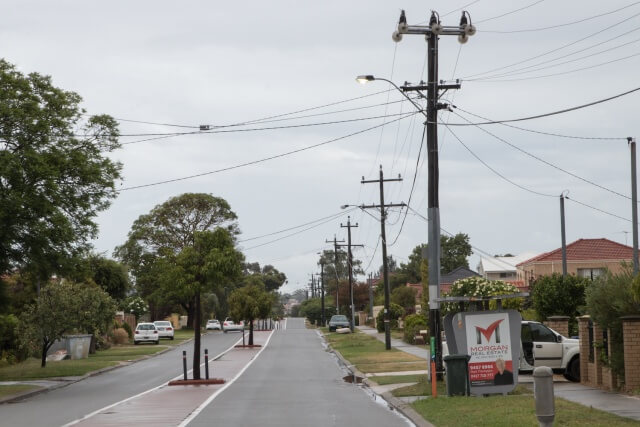
A Parkwood resident has urged residents in state underground power program areas to double check what they are getting into to avoid a shock on their next rates bill.
The program is jointly funded by the State Government, local governments and Western Power but now requires local government’s to fund 50 to 100 per cent of the project.
Residents can nominate their suburb for the program by surveying residents, if there is general support for it the project will go ahead.
Last month Shelley west was announced as the next Canning suburb to receive underground power under the program.
Neville Gibbs was a part of a group of residents opposed to putting his suburb’s power underground when they were shortlisted in round five of the program in 2015.
He said the cost to the City of Canning would have been passed down to the residents in their rates bill and would have cost each ratepayer $5400.
He said the way the program is structured could pit neighbour against neighbour.
“The human side of it is individuals are being put in a neighbourhood, one who has, against one who hasn’t,” he said.
“If you said to me the street would be nice without poles I’d say, ‘yeah’ but if someone said to me would you like a new car, I’d say, ‘yeah, but I cant afford to buy one’.
“My concern is that one individual that has money living alongside other individuals that may not be so well off are going to influence their way of life.”
Mr Gibbs was also concerned that ratepayers would be paying for upgrades for a private company if Western Power were privatised.
“The privatisation issue is something that we’re in unknown territory,” he said.
“Is there going to be some sort of an act that will allow these people to continue with it even though they will be a private entity?

“Are they going to still maintain this program with funds going into a partly private organisation?”
City of Canning mayor Paul Ng said the city had little influence on the costs and the suburb selection was ’robust’.
“The City of Canning and the state underground power steering committee undertake substantial research in the areas being considered for underground power,” he said.
“At least 50 per cent support from the community is required for a suburb area to be considered by council and for it to be recommended to the program.
“The program cost is determined through a competitive tender process undertaken by the State Government to install underground power in residential areas.
“The final cost is a result of the current competitive market rate at the time and a reflection of the work involved to complete the project.”
He said there were options for people struggling financially.
“In the past the city has provided the option, for those who cannot afford a lump sum payment, to pay by instalments with their annual rates over a 10 year period,” he said.
“Also, eligible pensioners currently have the option of a 50 per cent rebate on their cost towards underground power, similar to the rebate available for their council and water rates.”
Western Power was contacted but did not respond before deadline.













